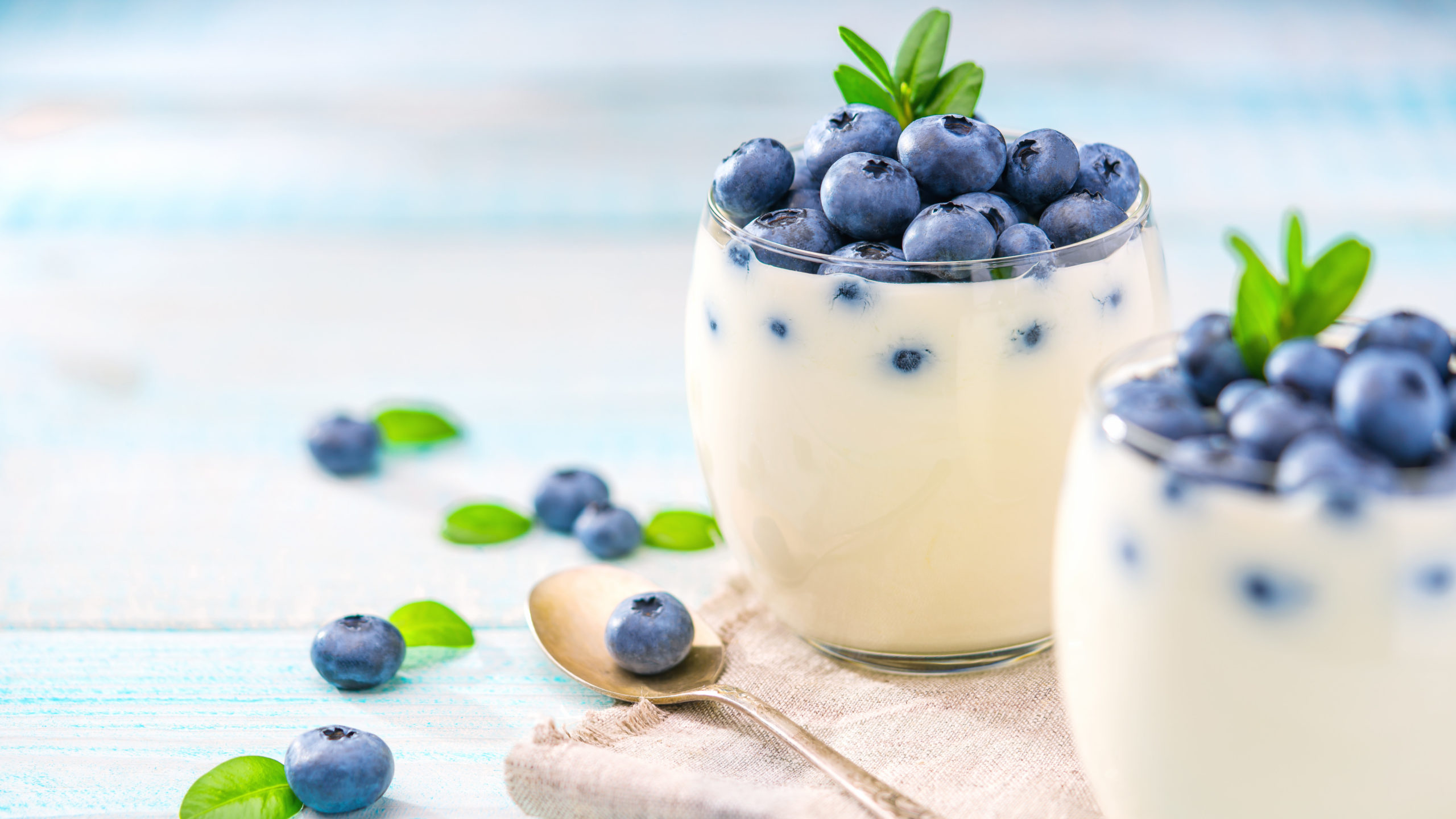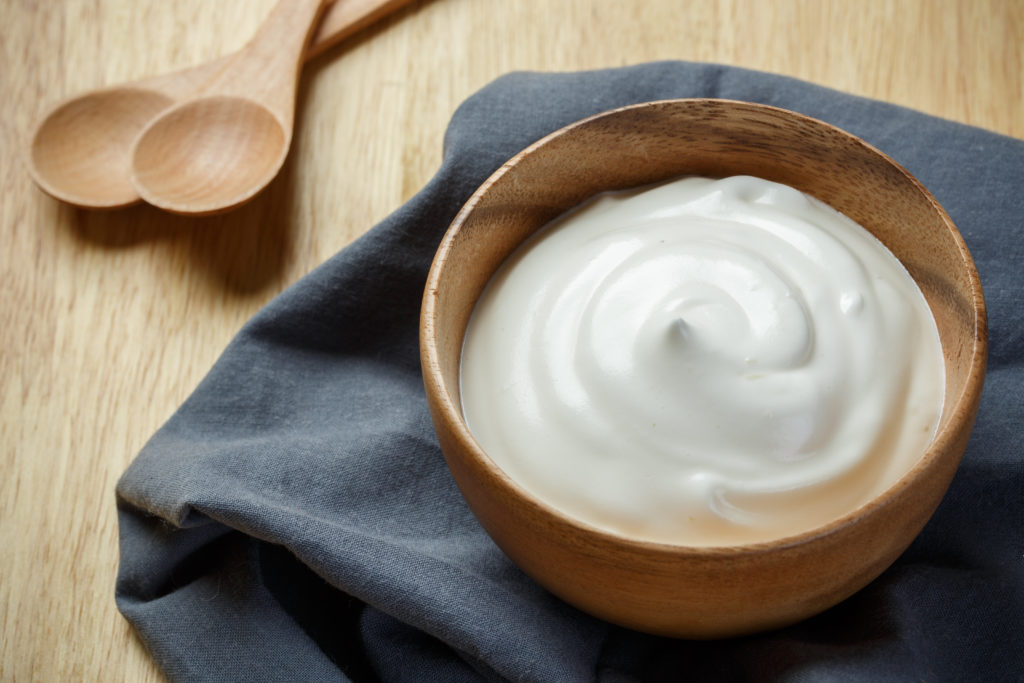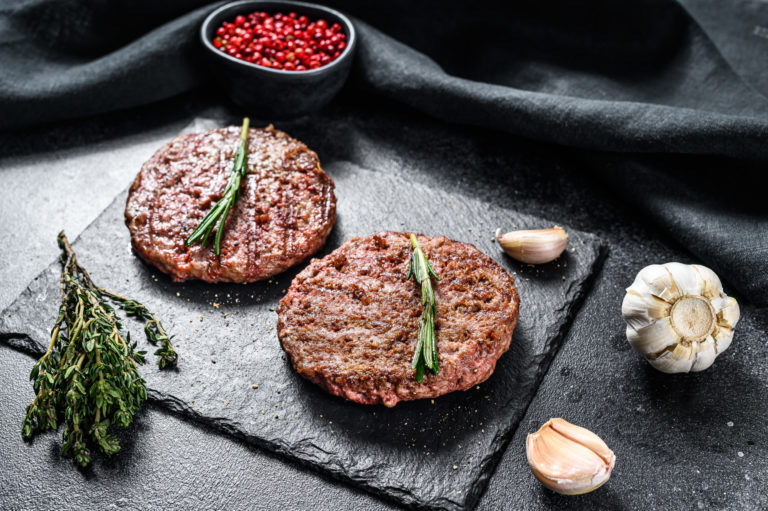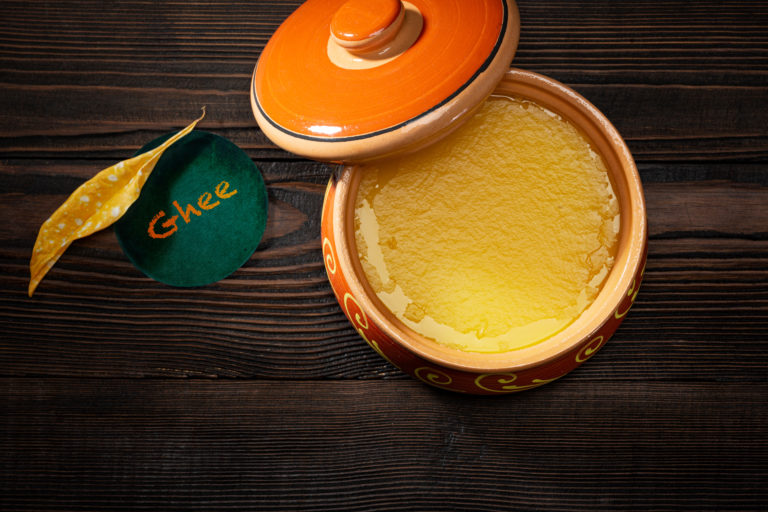Yogurt basically is cultured milk, that contains good amount of calcium, protein and potassium, with live cultures or good bacteria often called probiotics, which aids in good immune system and a healthy digestive tract. These active cultures ferment the milk to convert into creamy yogurt.
You may start with pasteurized milk, for when milk is heated evenly at high heat and for short period of time, it leads to a yogurt with creamy and homogeneous texture (light pasteurized milk or tempered milk). And introducing active cultures into milk for fermentation, often called starters. Longer the fermentation process, the better. During this process bacteria converts lactose in milk to lactic acid.
Difference between Greek yogurt and Natural plain yogurt is that Greek yogurt is a strained yogurt (separating the whey), consequently a thicker and a more concentrated product emerges. Hence, comprising of higher proteins and lower carbs.


- Whole Milk
- Live culture (starters)

 Using pasteurized milk
Using pasteurized milk
- Start by slightly warming the full fat whole milk to around 114o F.
- Then whisk in some 15 g of desired yogurt or natural powdered yogurt starters to begin the fermentation process. (avoid using metal for mixing).
- After that, transfer to an air tight clean jar, and place them in warm water. and then place the setup in a warm place altogether, possibly in an oven, that is turned off and slightly warm from inside with light on.
- Let it incubate for 12 hours or so.
- Thereafter, place the made yogurt in fridge and can be stored for up to 2 weeks.
 Using raw organic milk
Using raw organic milk
- Start by slightly warming the full fat whole milk to around 170o F or right before the milk starts to boil.
- Then bring the milk temperature down to around 115o F.
- Then whisk in some 15 g of desired yogurt or natural powdered yogurt starters to begin the fermentation process.
- After that, transfer to an air tight clean jar, and place them in warm water. and then place the setup in a warm place altogether, possibly in an oven, that is turned off and slightly warm from inside with light on.
- Let it stay for 12 hours or incubate overnight.
- Thereafter, place the made yogurt in fridge and can be stored for up to 2 weeks.
 Greek Yogurt
Greek Yogurt
For Greek yogurt simply strain the yogurt with something like a cheesecloth or nut-milk bag for around 5 hours or possibly overnight for best results.
Whey (fermentation water) will be separated resulting in a thicker and concentrated creamy yogurt, along with lower carbohydrates.

Customizing and Flavorings
For a rich yogurt, cream can be substituted for milk or dry milk powder can be added into the cold milk before heating it. Desired flavoring can also be added and drinks can be made along with frozen desserts like frozen yogurt.











